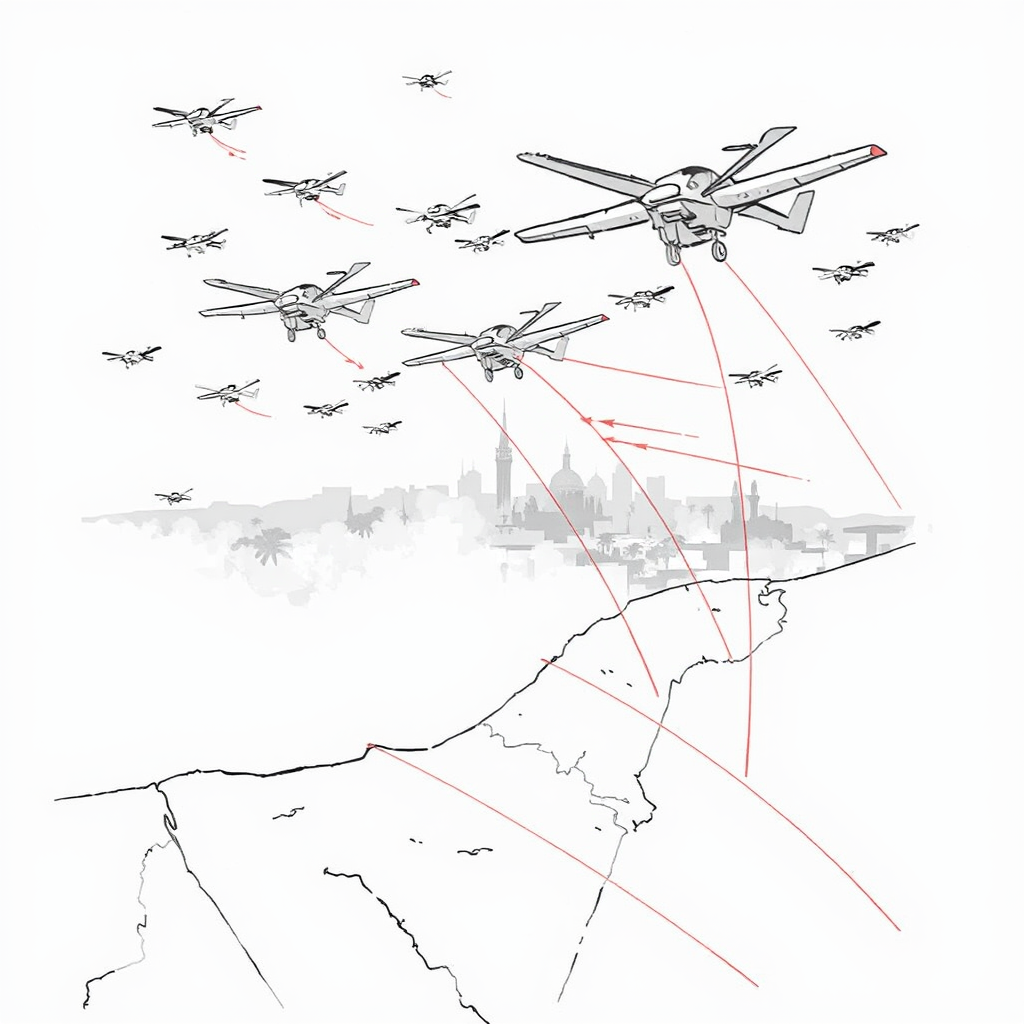Iran Strikes Israel: Retaliation Triggers Regional Crisis

Tensions escalated dramatically Saturday as Iran launched a large-scale retaliatory attack against Israel, following weeks of heightened alert and warnings of reprisal for a recent strike on Iranian soil. The attack, initiated Friday evening, involved the launch of over 100 drones toward Israel, according to Israeli Defense Forces spokesperson Effie Defrin, as reported by CNN. Israeli air defenses were immediately activated to intercept the incoming drones, with Defrin characterizing the situation as a significant escalation unlike previous events, anticipating a prolonged period of difficulty and urging public resilience.
The immediate context is the April 1st strike on the Iranian consulate in Damascus, widely attributed to Israel, which killed several Iranian military leaders and prompted vows of retaliation from Tehran. The current exchange represents a dangerous intensification of a long-running shadow war between the two nations, with the potential to draw in regional and international actors.
In response to the escalating threat, Tel Aviv cancelled its scheduled Pride parade, and Israel’s National Security Council issued a warning to Israelis abroad, advising them to take precautions against potential attacks targeting Israeli and Jewish communities globally. Prior to the drone launches, Israeli Defense Minister Israel Katz anticipated “immediate” retaliation from Iran. The United States had already begun evacuating embassy personnel from across the Middle East, and the State Department directed families and employees in Israel, the West Bank, and Gaza to shelter in place.
Several neighboring countries have taken steps to mitigate the risk of escalation. Jordan, Iran, and Iraq all announced the closure of their airspace early Saturday.
This is a rapidly evolving situation, and the full extent of the Iranian response, and Israel’s counter-response, remains unclear. The current escalation underscores the fragility of regional stability and the urgent need for de-escalation efforts to prevent a wider conflict. The international community must prioritize diplomatic solutions to avert further bloodshed and secure a lasting peace in the region.